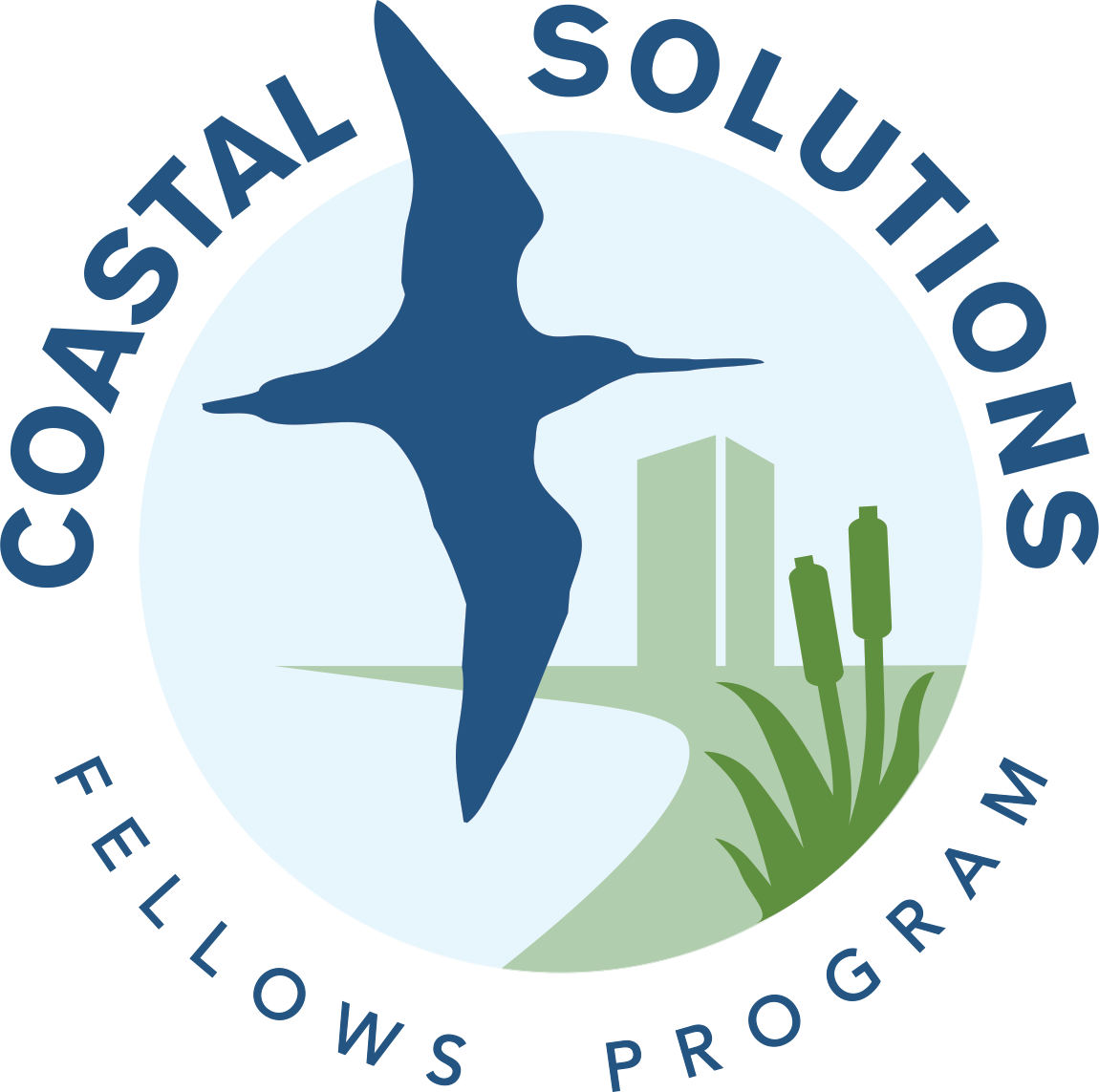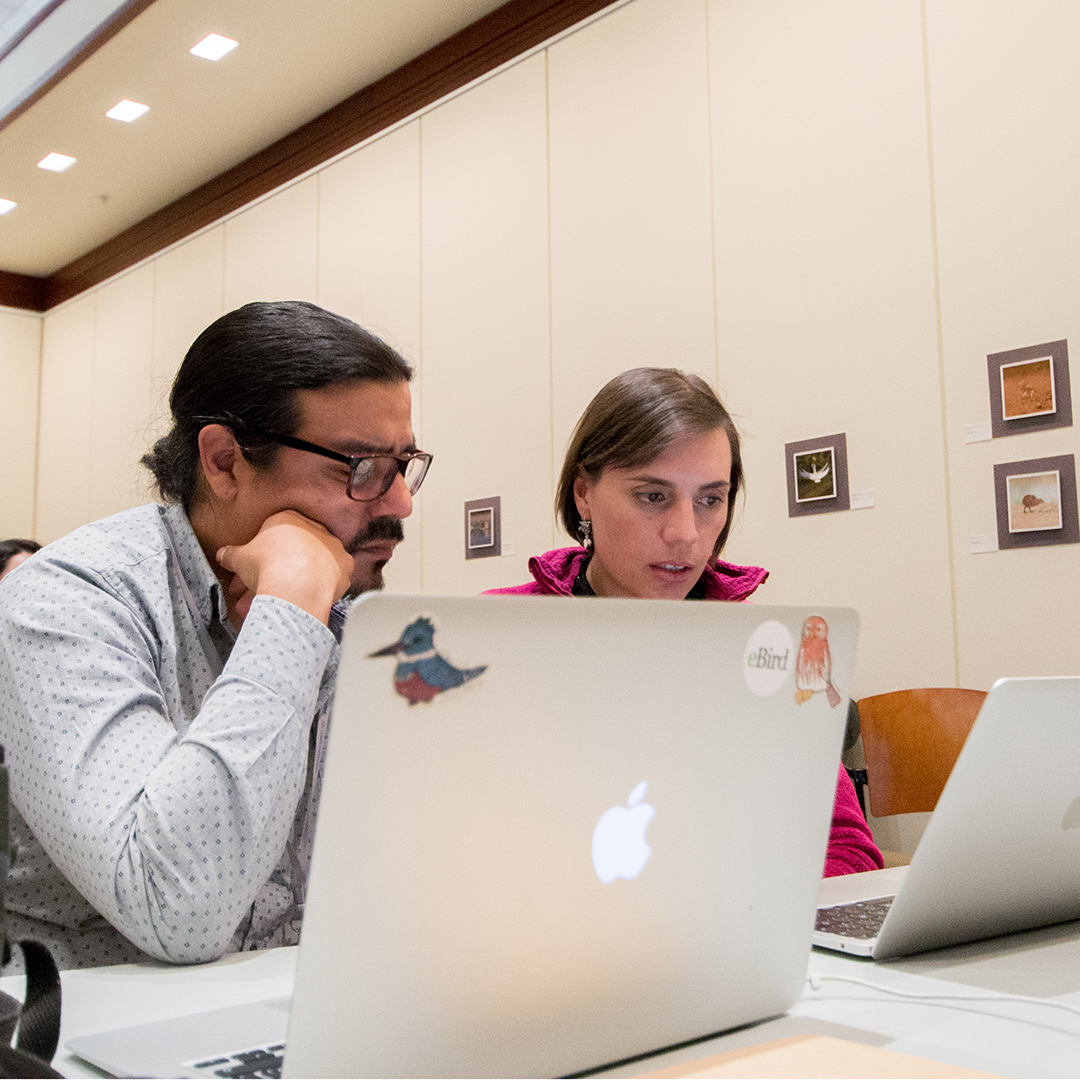Coastal Solutions Mentors: Cristóbal Pizarro, Director of the Antropocene Studies Lab
Manuela’s mentor is Cristobal Pizarro, an interdisciplinary scientist and socio-ornithologist from Concepción, Chile. Cristobal is the Director of the Laboratory of Anthropocene Studies’ and a Forestry Sciences faculty member at the Universidad de Concepción in Chile. He earned his PhD in the University of Waterloo, Canada in Social Ecological Sustainability, and his MSc in Natural Resource Management at the Universidad de Magallanes, Chile, with a focus on the relationship between ecotourism and environmental ethics.
Cristobal sees an important connection between human wellbeing and the wellbeing of ecosystems, and has included both social and ecological perspectives in his research and conservation work. As he explains, “A world without birds is a sad unhealthy space. We know that if something is affecting birds, it is affecting us too.” Throughout his career, Cristobal has worked with local, rural, and indigenous communities to strengthen environmental values linked to birds and their own wellbeing, so that conserving birds and their habitats also revitalizes the communities’ cultural heritage.
As one of the first social scientists awarded with the Coastal Solutions Fellowship, Manuela was an ideal fit for Cristobal’s intersectional focus. Manuela knew of Cristobal’s work on ethno-ornithology and reached out to Cristobal through a mutual colleague. Since then, Cristobal has assisted Manuela in her project by helping her to add precise ornithological and ethno-ornithological criteria for conservation planning in Tubul-Raqui, and by providing institutional support through his role at the Universidad de Concepción, which is the main academic institution in the region.
In contrast to the typical mentor-fellow hierarchy, Cristobal and Manuela have built a team that also includes another ornithology expert, Heraldo Norambuena, from a shorebird research center at Bahia Lomas, and other students and colleagues from Universidad de Concepción. In addition to the main project, a group of Cristobal’s students have created the audiovisual collective “Baguales” that is documenting and communicating Manuela’s work in Tubul-Raqui.
Together, Cristobal, Manuela, Heraldo, and the rest of the “Tubul team” were able to develop and submit the proposal to declare Tubul-Raqui a Nature Sanctuary in the midst of the COVID-19 pandemic. Throughout the year-round process, which Cristobal describes as a “monumental task,” the team found novel ways to collaborate virtually and used GIS data, maps, bird censuses, and other information to build a proposal the team was proud of.
Now, Cristobal believes that one of the greatest challenges the project faces is the complex socio-ecological situation present in Tubul-Raqui. The local indigenous community, the Mapuche people, are experiencing both drought and increased conflict with the large companies that own the plantations that surround the wetland. The locals also have their own internal conflicts and disagreements on conservation and how to manage Tubul-Raqui.
As Cristobal explains, “to empower and consolidate a local group responsible for the Nature Sanctuary management remains the main challenge…Any intervention must have a sound social legitimacy to be supported or maintained in the long run.” Cristobal, Manuela, and their team are already seeing signs of progress in the emergence of strong local leadership.
Overall, Cristobal believes that Manuela’s project is proof that now more than ever we need to support social scientists working on shorebird conservation, as shorebirds often inhabit critical areas for both biodiversity and human wellbeing, and we need to know how to design solutions that work for both humans and wildlife. In the future, Cristobal hopes that his work with Manuela to offer a socio-ecological perspective on shorebird conservation could inspire other fellows to create interdisciplinary teams with social scientists.


The Coastal Solutions Fellows Program builds and supports an international community to design and implement solutions that address coastal challenges across the Pacific Americas Flyway. Our main goal is to conserve coastal habitats and shorebird populations by building the knowledge, resources, and skills of Latin American professionals, and by fostering collaborations among multiple disciplines and sectors.


